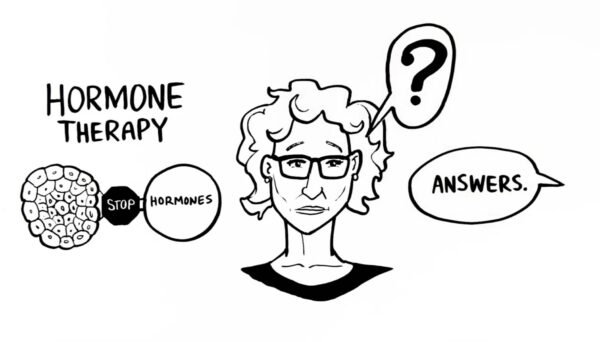What Are The Daily Activity Advice For Children With Autism?
Here are some daily activity advice for children with autism:
- Establish A Routine: Children with autism often thrive with a structured routine, as it provides them with predictability and helps them feel more in control. When creating a schedule, be sure to include regular times for meals, playtime, rest and other activities.
- Sensory Activities: Children with autism may have sensory processing difficulties, which can impact how they interpret and respond to sensory information such as touch, sound and movement. Sensory activities can help them regulate their senses, such as playing with sensory toys, listening to calming music or practicing deep breathing exercises.
- Outdoor Activities: Spending time outside can provide children with autism with a sensory-rich environment and opportunities for physical activity. Some outdoor activities to consider include going for a nature walk, playing in a sandbox or at a playground or engaging in sports such as soccer or basketball.
- Creative Activities: Many children with autism have a strong interest in creative pursuits, such as drawing, painting or playing music. Encouraging these interests can be a great way to help them express themselves and develop their skills.
- Educational Activities: Incorporating educational activities into a child’s daily routine can help them develop new skills and knowledge. Examples of educational activities include reading books, practicing math problems or working on language skills through games and puzzles.
- Socialization Activities: Children with autism often struggle with social skills, but with practice, they can improve their abilities to interact and communicate with others. Socialization activities can help with this, such as having playdates with friends, joining a social skills group or participating in group activities such as sports teams or art classes.
it’s very helpful to be aware that every child with autism is unique and what works for one child may not work for another. It’s very helpful to observe your child’s interests and needs and tailor activities accordingly.


What Are The Nutrition Advice For Children With Autism?
Here are some nutrition advice for children with autism:
- Encourage A Balanced Diet: A balanced diet is one that includes a variety of foods from all food groups, including fruits, vegetables, whole grains, lean proteins and healthy fats. Encourage your child to eat a variety of foods from each food group to ensure they are getting all the nutrients they need.
- Consider Food Sensitivities: Some children with autism may have food sensitivities or allergies that can affect their behavior or digestive health. Common food sensitivities in children with autism include gluten, dairy and artificial additives. Consult with a healthcare professional to identify any potential food sensitivities and make appropriate dietary adjustments.
- Provide Regular Meals And Snacks: Children with autism may benefit from a predictable routine, including regular meals and snacks throughout the day. Offer healthy options such as fruit, vegetables, nuts and whole grains and avoid foods that are high in sugar or artificial additives.
- Consider Supplements: Some children with autism may benefit from certain supplements, such as omega-3 fatty acids or probiotics. Consult with a healthcare professional before giving any supplements to your child, as they can interact with other medications and have side effects.
- Minimize Processed Foods: Processed foods can be high in sugar, unhealthy fats and artificial additives, which can impact a child’s behavior and overall health. It’s best to limit processed foods as much as possible and choose whole, minimally processed foods instead.
- Involve Your Child In Meal Planning And Preparation: Involving your child in meal planning and preparation can help them develop healthy eating habits and encourage their independence. Let them choose some healthy options and help with simple tasks such as mixing ingredients or setting the table.
- Be Patient And Flexible: Some children with autism may have difficulty trying new foods or may have preferences for certain textures or flavors. Be patient and offer a variety of foods over time, and be flexible with food choices and preparation methods to find what works best for your child.
What Are The Hygiene Advice For Children With Autism?
Children with autism may have unique challenges or sensory sensitivities that make it difficult to establish good hygiene habits. Here are some hygiene advice for children with autism:
- Establish A Routine: Children with autism may thrive on a predictable routine, including a consistent hygiene routine. Establish a set time for brushing teeth, bathing and washing hands and stick to it as much as possible.
- Use Visual Supports: Many children with autism benefit from visual supports, such as pictures or visual schedules, to help them understand what is expected of them. Use visual supports to illustrate the steps involved in brushing teeth, bathing and washing hands.
- Be Patient And Flexible: Children with autism may have difficulty with certain aspects of hygiene, such as brushing teeth or washing their hair. Be patient and offer gentle guidance and be flexible with the specific methods or products used to accommodate your child’s preferences or sensory sensitivities.
- Use Sensory-Friendly Products: Children with autism may be sensitive to certain textures or sensations, which can make hygiene routines challenging. Use sensory-friendly products, such as toothbrushes with soft bristles or shampoo without strong fragrances, to make hygiene routines more comfortable for your child.
- Practice Social Stories: Social stories are a tool used to help children with autism learn new skills and behaviors by presenting information in a structured, story-like format. Use social stories to introduce new hygiene routines or reinforce existing ones.
- Reinforce Positive Behavior: Positive reinforcement can be a powerful tool in establishing good hygiene habits. Praise your child for good hygiene habits, such as washing their hands without prompting or brushing their teeth thoroughly and provide positive feedback and rewards when appropriate.
- Use a Multi-Sensory Approach: Children with autism may benefit from a multi-sensory approach to hygiene, incorporating different textures, sounds and visual cues. For example, using a vibrating toothbrush or playing calming music during bathtime may help your child feel more comfortable with the routine.
- Use Social Modeling: Children with autism may learn best by watching others. Use social modeling by demonstrating good hygiene habits yourself and encourage siblings or peers to model good hygiene habits as well.
- Address Sensory Sensitivities: Children with autism may be sensitive to certain sensations or textures, which can make hygiene routines challenging. Address sensory sensitivities by using sensory-friendly products, such as soft-bristled toothbrushes or unscented soap.
- Use Positive Language: Children with autism may struggle with negative language or criticism. Use positive language to encourage good hygiene habits, such as saying “let’s wash our hands so we can stay healthy” instead of “don’t touch that, it’s dirty”.
- Incorporate Play: Children with autism may benefit from incorporating play into hygiene routines. For example, using bath toys or incorporating bubbles into bathtime may make the routine more enjoyable for your child.
- Gradually Introduce New Routines: Children with autism may struggle with new routines or changes in routine. Gradually introduce new hygiene routines, such as introducing a new toothpaste or shampoo, to help your child adjust more easily.
What Should Rooms For Children With Autism Be Like?
Rooms for children with autism should be designed in a way that promotes a sense of calm and comfort, while also minimizing sensory overload. Here are some tips for creating a sensory-friendly environment in a child’s room:
- Create A Calming Atmosphere: Children with autism can be sensitive to harsh lighting or bright colors, so creating a calming atmosphere is important. Use soft lighting, such as lamps or warm LED lights, instead of fluorescent or bright overhead lighting. Choose soothing colors, such as blue or green for the walls and decor.
- Minimize Clutter: Clutter and excessive visual stimuli can be overwhelming for children with autism. Keep the room tidy and minimize the number of toys or decorations in the space. Consider using storage solutions, such as baskets or bins, to organize toys and other items.
- Provide A Quiet Space: Children with autism may benefit from having a quiet space to retreat to when they feel overwhelmed or overstimulated. Consider adding a cozy nook with a soft chair, bean bag chair, or a tent-like structure where your child can relax and have some alone time. You can also add white noise machines or calming music to promote relaxation.
- Use Sensory-Friendly Materials: Children with autism can be sensitive to different textures and materials so it’s important to consider using sensory-friendly materials in the room. Soft blankets, weighted blankets and textured rugs can provide a sense of comfort and security. Choose materials that are not too scratchy or rough.
- Consider Soundproofing: Children with autism can be sensitive to noise, so consider soundproofing the room or using sound-absorbing materials such as curtains, area rugs or acoustic tiles. You can also add white noise machines or calming music to drown out background noise.
- Incorporate Sensory Play: Sensory play can be beneficial for children with autism, so consider incorporating sensory play items, such as a sensory table or textured toys, in the room. You can also add a swing, a trampoline or other equipment for proprioceptive and vestibular input.

